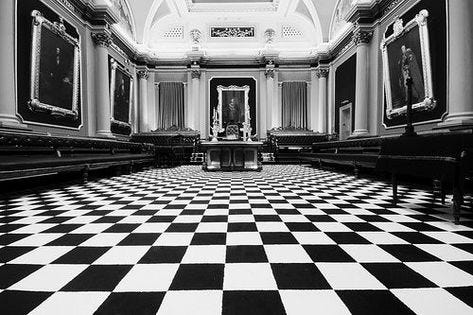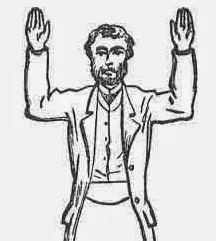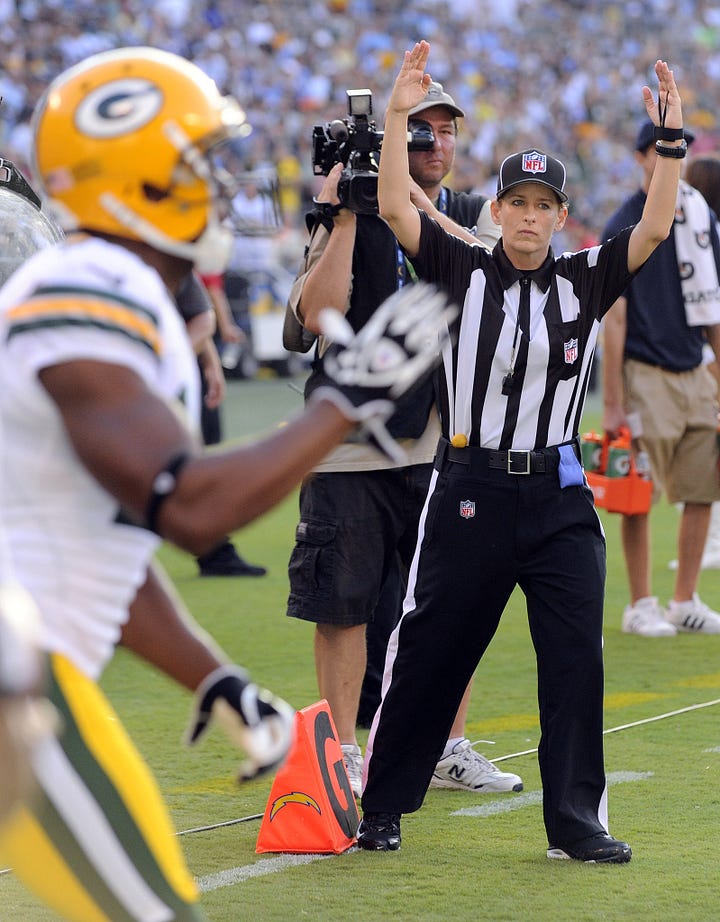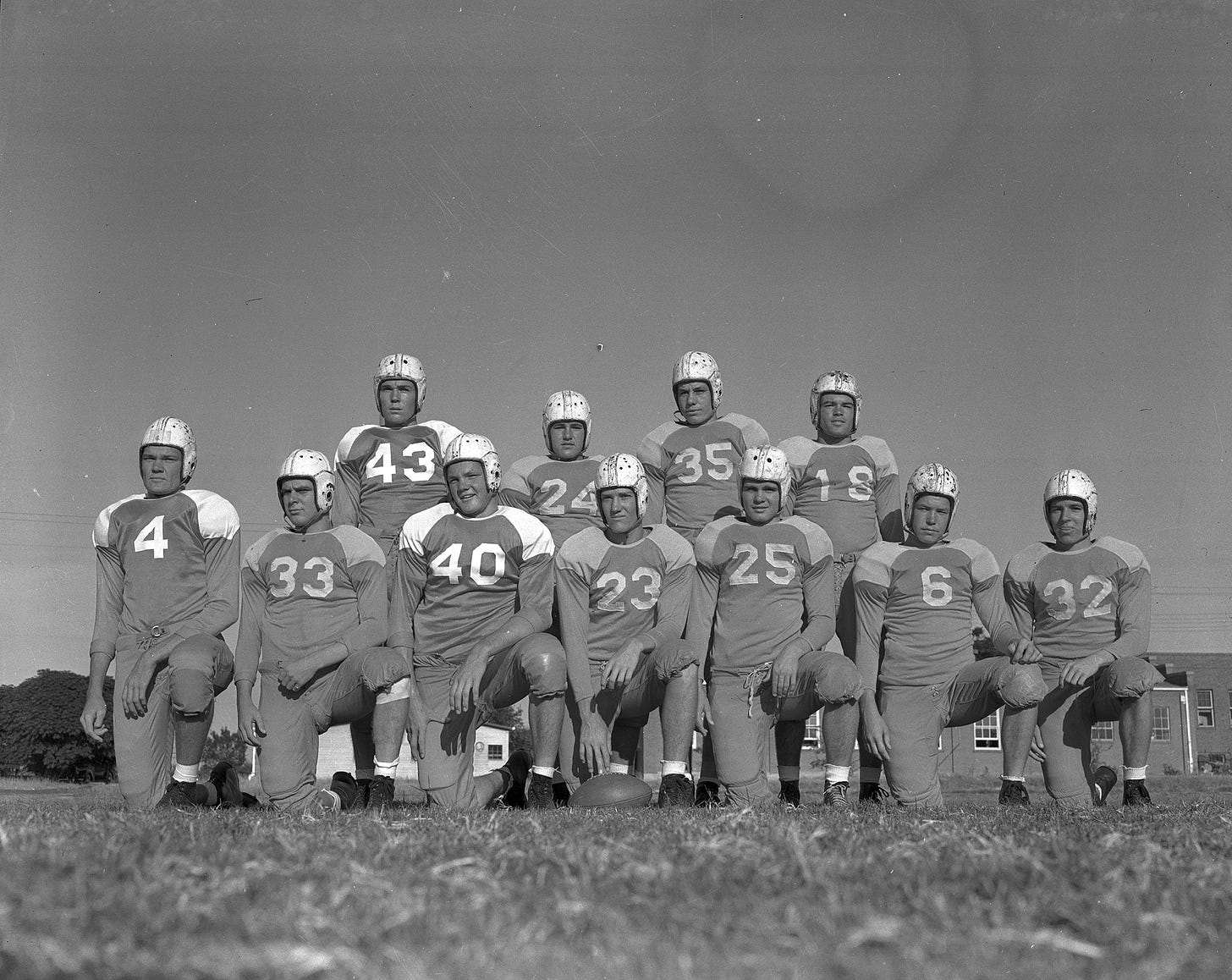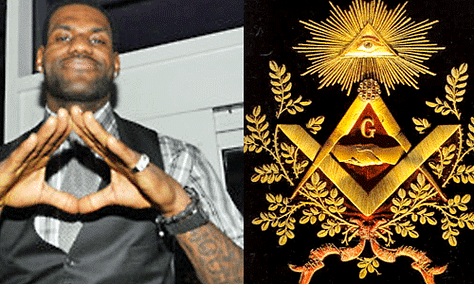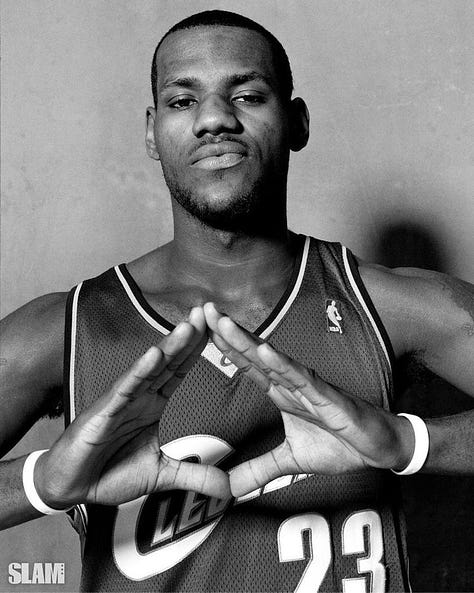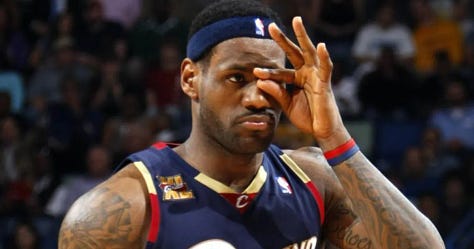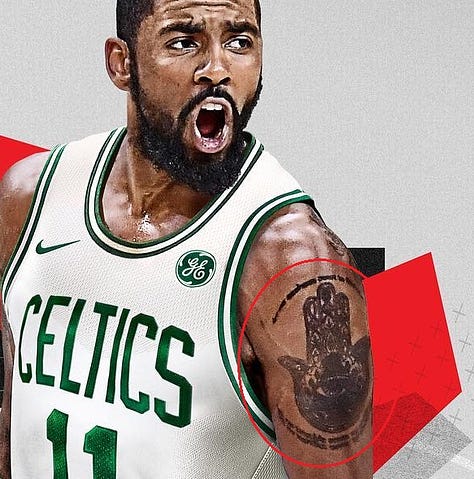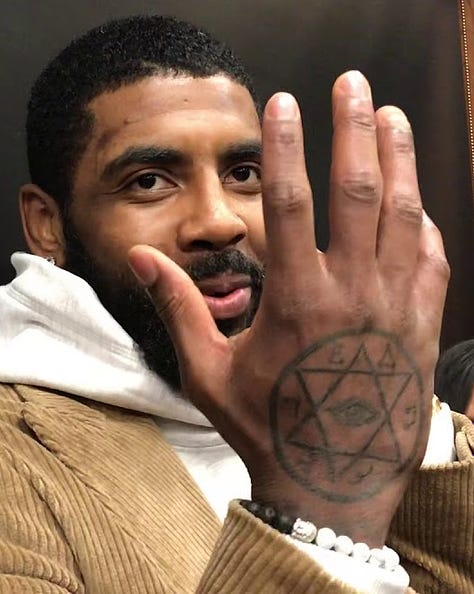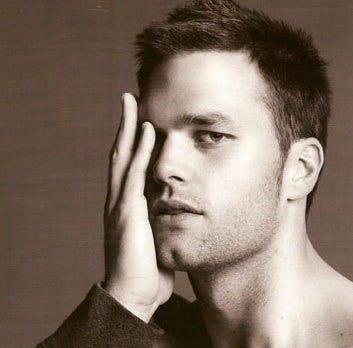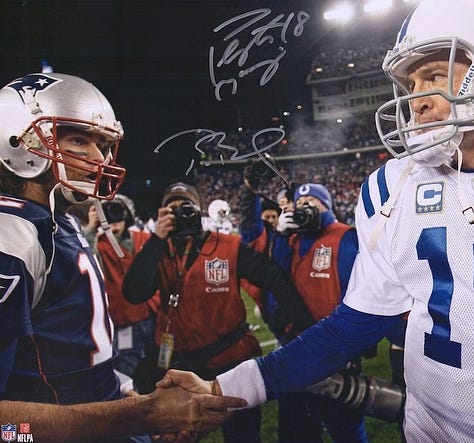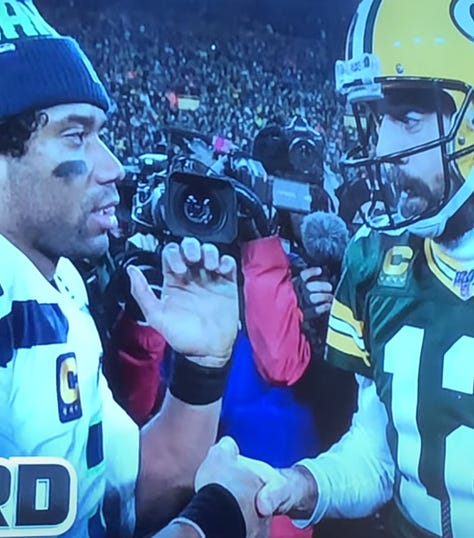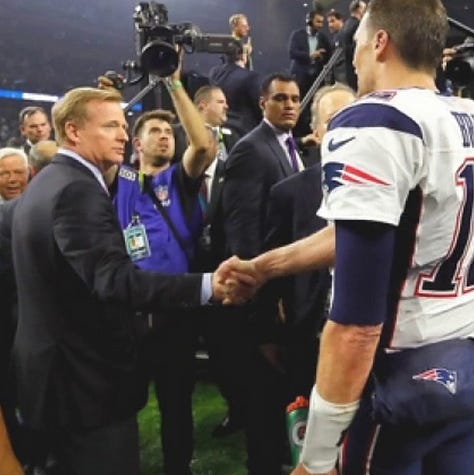Originally posted at Dispatches from Reality, by Scipio Eruditus. dfreality.substack.com
“The similarities between sport fandom and organized religion are striking. Consider the vocabulary associated with both: faith, DEVOTION, worship, ritual, dedication, sacrifice, commitment, spirit, prayer, suffering, festival, and celebration.”
— Daniel Wann, Sports Psychologist
Since the earliest days of man, contests of athletic prowess, politics, and religion have been inextricably linked. This relationship goes way beyond surface level comparisons or similarities in linguistic terms. Sporting events — whether it be the Greek Olympics, the Roman Coliseums, or the Mayan ballgame — were not purely for entertainment purposes alone: they served as vital rituals to enforce societal order and cohesion. A ritual is quite simply an ordered process in which specific acts are repeated in a specific manner, whether secular or religious in nature. When rulers held these sporting spectacles, they served not just as a useful distraction, but also as a tacit display of the sovereign’s wealth and power.
In America, professional sports now serve a similar function. As shocking as this may sound to the casual fan, Basketball, Football, and Baseball were all created or propagated by Freemasons. Some of the most well known athletes, coaches and sporting icons are naturally members of this ancient fraternity, including but not limited to: Shaquille O’Neal, Scottie Pippin, John Elway, Red Auerbach, Arnold Palmer, Sugar Ray Robinson, Jack Dempsey, Ty Cobb, Roger Hornsby, Babe Ruth, Willie Mays, Ted Williams, Grover Alexander, Branch Rickey, Honus Wagner, Cy Young, & Joe Frazier. These men are iconic, forever shaping the landscape of their respective sports. Without Freemasonry’s ever present influence, modern American sports as we know them would simply not exist.
(For a primer on Freemasonry its true beliefs, see my cornerstone essay, The Great Delusion.)
Perhaps the greatest impediment to self-governance is our own addiction to comfort. We all know people like this: many of them are our family or friends, they might even have been you at one point. Their lives revolve around professional sports or their pet hobby. It affects their moods, their attitudes, and their relationships. They know more about the intricacies of a game involving men in tights than they do about how their own government works. Tailgate? Sign them up. Town hall meeting? *crickets*
Professional sports have effectively become our new civil religion, and it is no accident that Freemasons were there to shepherd them along every step of the way.
“Basketball is like RELIGION. Many attend, but few understand.”
— Scott Skiles, NBA Player & Coach
The first organized team sport in recorded history was the Mayan ballgame. It held a central place within Mayan life as a religious ritual, a political ritual, and a sporting event wrapped into one. Human sacrifice was unquestionably a central aspect of this ritual, as Mayan art and city layouts make clear:
By sacrificing the best players and war captives after a game, the Mayans believed this ritual helped ensure the cyclical rebirthing of the Sun, as well as a fertile harvest. Festivals and games would also be held after military victories and on significant religious holidays. The Mayan ballgame fundamentally served as a religious and political tool by which the elites of Mayan society could remind their subjects of the true order of things: a ruthless hierarchy based upon physical might and the divine providence of the gods.
Before the game was played, extensive pre-game rituals would have been conducted as the priests and nobility looked on. Players would dress up as various Mayan gods, playing their small part in a mock pageant of cosmic proportions. After the starting toss, the rubber ball would constantly be kept in motion without using one’s hands. Players would strike the ball in an attempt to send it sailing through the stone hoop from east to west, an homage to the rising and setting of the Sun. The Mayan word for ball, quiq, means more literally sap or blood; clearly invoking the sanguinary nature of the game. The ball also signified a human head, i.e. knowledge or wisdom; many human skulls have been found inside these Mayan artifacts.

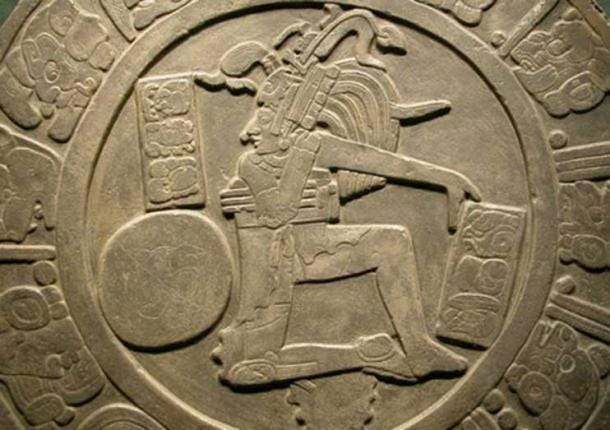
Naturally a pagan ritual such as this is steeped in arcane symbolism (emphasis mine):
It is essential to note that the symbolism of the Mayan ballgame bears a striking resemblance to the resurrection myths of the Egyptian deity of the Underworld & Vegetation: Osiris. This story is just one of the many veiled meanings of the Masonic allegory of Hiram Abif, i.e. Nimrod, the man of many names. It is also important to note that constructing these archaic proto-stadiums would have required extensive knowledge in stone working and masonry. Beyond the ritual and religious purposes of the game, it served as an invaluable tool of societal manipulation on behalf of the Mayan elite: bread and circuses have ever been used to distract the masses from their plight.

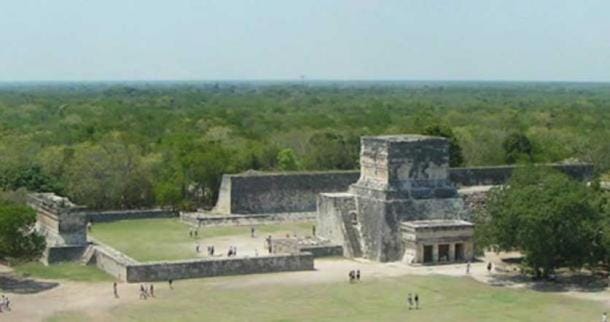
Unsurprisingly, such symbology is seen once again with the founding of American basketball. James Naismith, the inventor of modern basketball, was a lifelong and active Freemason. In a pattern we will see quite frequently in this essay, Masonic lodges played a huge role in the spreading of the game. Naismith served as the Worshipful Master of the Lawrence Lodge No. 6, the lodge he was primarily affiliated with. The first basketball game played was on December 21st, 1891: the winter solstice. This day is the longest day of the year, and is celebrated by pagans and occultists alike as the symbolic rebirth of the Sun. I’m sure it’s just a coincidence that a sport modeled after the Mayan Sun rebirth ritual would be christened on the holiday celebrating that very ritual.
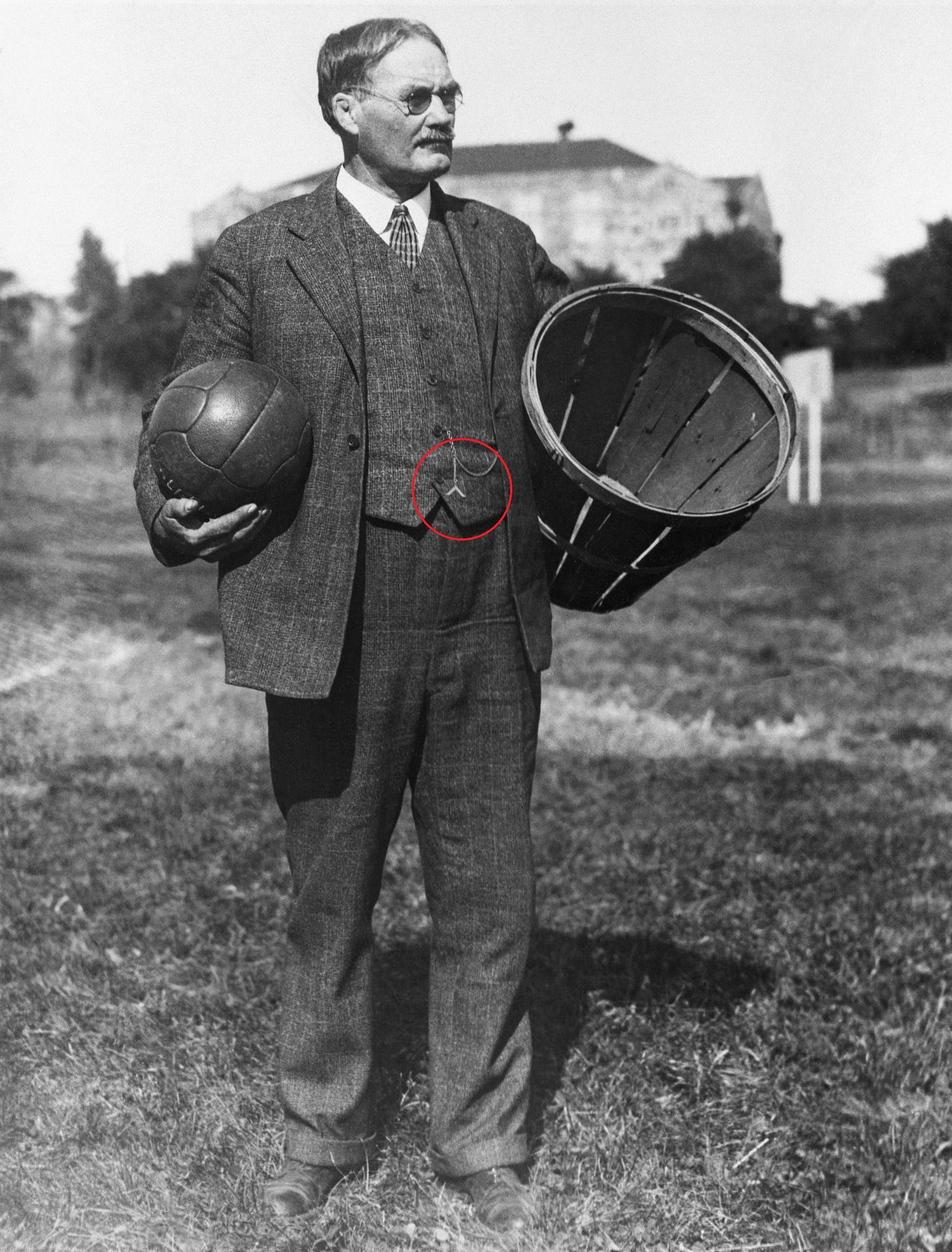
“Baseball is like CHURCH. Many attend, few understand.”
— Leo Drucher, MLB Player & Manager
Occultism has unquestionably made it’s presence known within American baseball. There is some dispute amongst baseball historians on who the authentic founder of the game was. Major General Abner Doubleday was historically credited with creating and playing the first baseball game in Cooperstown, New York, 1839. Doubleday was an officer in the Union Army and just so happened to be present at Fort Sumter during the false flag that started the Second Revolutionary War (See The Frankenstein Formula, Part I for a further discussion of this event). On April 14th, fellow Freemason Robert Anderson lowered the American flag at Fort Sumter, signaling the beginning of the not so civil war. General Doubleday would then fortuitously find himself at the decisive battle of the war — the Battle of Gettysburg; yet another pivotal event with no shortage of influential Masons calling the shots.
Talk about being in the right place at the right time.
After the war, Doubleday would join one of the more infamous occult groups, The Theosophical Society. The Society was co-founded in 1875 by a Russian mystic and sorceress, Helena Petrovna Blavatsky. The history and philosophy of this organization is worthy of it’s own future essay, but suffice to say, Madam Helena Blavatsky is one of the most influential occultists in the last two centuries, rivaled only by The Beast himself — Aleister Crowley. Doubleday would quickly prove himself indispensable to the Madam. When Blavatsky and her co-founder Henry Steel Olcott moved to India in 1879, Doubleday would be selected as the president of the American branch of Theosophy. Upon his death in 1893, General Doubleday was buried in Arlington National Cemetery; an obelisk of the Mystery religion marks his final resting place.
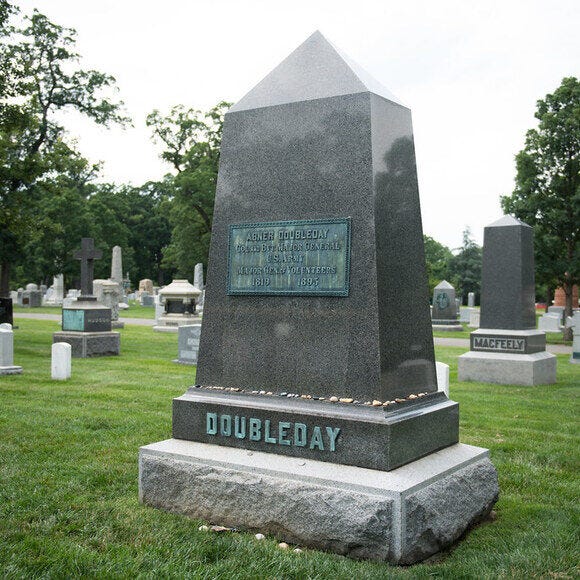
The now generally accepted creator of American baseball is Alexander Cartwright, a man with a no less fascinating a biography. Cartwright joined the Freemasons in New York City, becoming a Master Mason before ultimately heading to the Hawaiian islands in 1849 to further the spread of, *ahem*, “baseball”. Just weeks after he arrived, Cartwright petitioned the Honolulu lodge for membership (Martin, Pg. 57); he was exceedingly active in the creation of new lodges over the next decade. Eventually the French and English strains of Masonry within Hawaii would unite under one lodge, an event commemorated with Hawaii’s first public Masonic ritual.
King Kamehameha IV led this cornerstone laying ritual as Grand Master of the lodge, with Cartwright serving as the representative of his own lodge. By this time Cartwright had already ingratiated himself with Queen Emma, the wife of Hawaii’s last king and fellow Freemason, King Kalākaua. Cartwright served as the Queen’s financial advisor until his death in 1892, just six months before the Masoniclly inspired revolution that toppled the Hawaiian monarchy.
I can not help but remark on the sheer absurdity of this man’s life story: it’s Forest Gump levels of serendipity. First he is a New York lawyer, then a California gold prospector, before becoming a Hawaiian fire chief; ultimately winding up as one of the most influential Westerners within Hawaiian politics. Quite the streak of increasingly fortuitous circumstances. And all of this while relentlessly propagating “America’s national pastime”. Baseball historians don’t find this incredulous fact-pattern the least bit curious?
It’s a yarn only a Mason could spin.

Morris Raphael Cohen is the first person known to equate baseball to religion, saying: “[when the future scholar] comes to speak of America’s contribution to religion, will he not mention baseball?” If baseball is a religion — a charge I would concur with — then it is a decidedly Masonic one. Like basketball, Masonic clubs helped spread and popularize this nascent sport. Freemason symbols are clearly evident throughout baseball, an obvious homage by its creator. Let us refer to the Masonic Dictionary for a better understanding of the significance of the number 9 within Masonic gematria:
In Kabbalah, 9 is the sefirot Yesod; a symbol for the phallus, as well as the creative energies of man. The Masonic numerology referenced above is seen throughout the game, for example:
- 3 Strikes
- 3 Outs
- 9 Players per team
- 9 Innings
- 27 Outs per game
- 81 Homes games a season
- 81 Games on the road
- 90’ Between bases
Although a newer addition, the checkerboard pattern makes a prominent appearance on the field as well: a notorious Masonic symbol. Baseball in particular is filled with a truly staggering amount of sacred geometry; the ancestral Masons of yore would have no doubt been impressed with the sheer density of symbolism displayed here.


“The importance that our society attaches to sport is incredible. After all, is football a game or a RELIGION?
The people of this country have allowed sports to get completely out of hand.”
— Howard Cosell, Sports Journalist & ABC Broadcaster
Masonry’s ties to football are admittedly more tangential, but no less significant. On October 26th, 1863, the Football Association was founded at Freemasons’ Tavern on Great Queen Street, London. (The United Grand Lodge of England’s New Connaught Rooms now reside at that same address.) The first football game played America was between Princeton and Rutgers. Both of these universities were rife with occultists by this point: Princeton had founded their Masonic lodge just a year earlier in 1868; the Order of the Bull’s Blood was founded in 1834 at Rutgers. Freemasons were no less integral to spreading this game, with Masonic teams and clubs helping to spread this Americanized version of rugby.
Like the rest of the legalized federal cartels masquerading as free enterprises (such as big tech), the FBI and the NFL are essentially a revolving door. Since it’s creation in 1908 by Attorney General Charles Bonaparte — the grand-nephew of Napoleon Bonaparte — the FBI has effectively served as the reformed Praetorian Guard. Investigative journalist Dan E. Moldea details this decades long partnership in the first chapter of his book, excerpted below (emphasis mine):
As a blatantly unconstitutional federal police force, the Bureau has always served as the strong arm of the federal leviathan.
Due to these systemic criminal ties, the integrity of these professional leagues have been called into question time and time again. Gambling scandals have plagued the NFL since Super Bowl III. In 1983, PBS journalist Jessica Savitch released a scathing Frontline report on game-fixing within the NFL, as well as its voluminous ties to organized crime and illegal sports betting. In October of that same year, the car she was riding in crashed into a shallow drainage ditch; according to the coroner, she drowned in under a minute. This behavior is by no means a thing of the past: cheating and gambling scandals continue to plague all major sports leagues on a now yearly basis. With legalized sports betting on the rise, expect such behavior to increase.
With tens of billions of dollars at stake, to think otherwise would be naïvety of the highest order.
“We’re talking about a different NFL now… before it was more about the game. Now it’s such an entertainment business. It’s turning into the WWE really. It’s like the Vince McMahon stuff.
Basically, Goodell is like Vince McMahon.”
— Joe Thomas, Cleveland Browns Tackle
As a matter of legality, there are no laws against a sports league fixing or predetermining the outcomes of games. While they advertise themselves as a sport, professional leagues legally identify as something else entirely. The NFL has argued in court as recently as 2010 that they are not a sport, but an entertainment business; the same classification as the WWE and professional wrestling. There is no FCC requirement that any sporting or news outlet must tell the truth on television. In fact FOX argued it was their first amendment right to lie in 2003, and the Florida Second District appeals court agreed that media corporations like FOX can blatantly lie to its consumers. The exceedingly generous and patently absurd legal dispensations that have been granted to these sports leagues should dispel the notion that professional sports are somehow separate from the government. If not for the federal government’s largesse and legal protections, such businesses could not operate as the tax-free monopolies they currently are.
Former players have begun increasingly speaking out about the charade that is modern sports, such as Super Bowl champion Dwight Smith and former Kansas City Chiefs running back Larry Johnson:
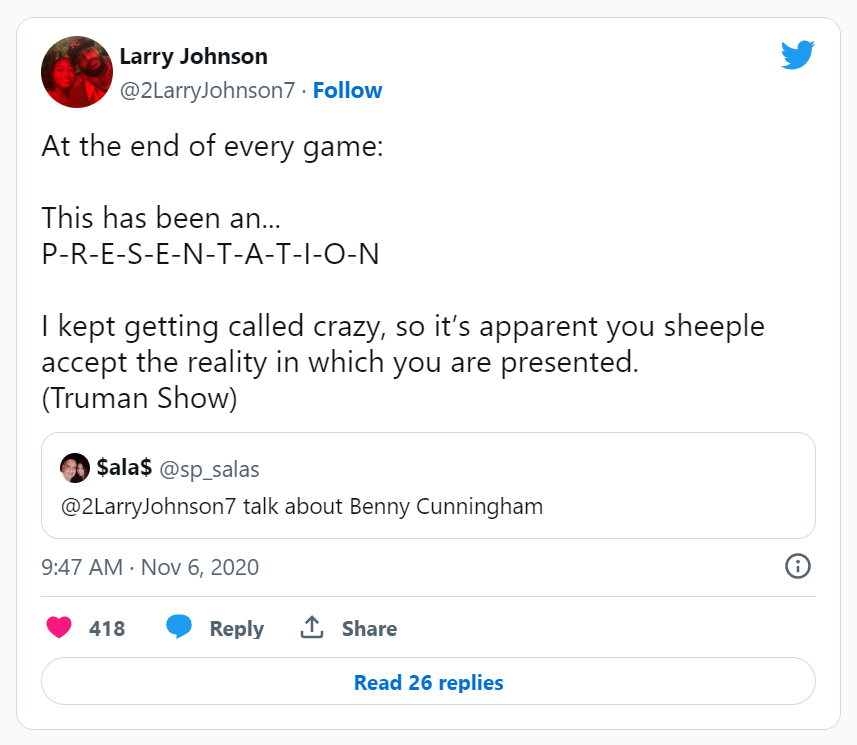
As Larry Johnson documents quite extensively on his Twitter account, sports are no less steeped in occult worship than Hollywood, the music industry, or politics:
Naturally, there is no shortage of photographic evidence confirming these charges:
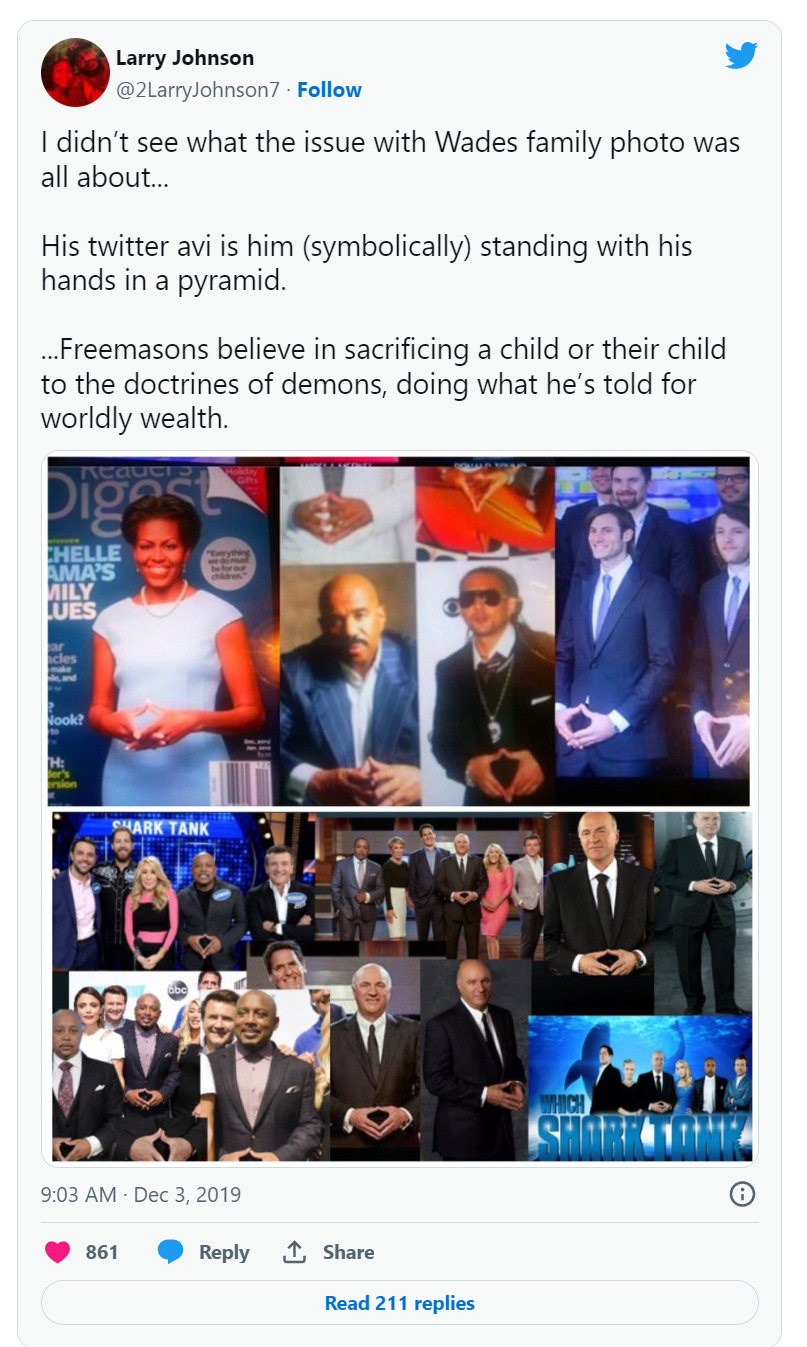
“Give them bread and circuses and they will never REVOLT.”
— Juvenal
While the homeland rots away, our sports teams — in concert with local government — have shaken down the taxpayer for ever more outrageous sums of lucre. Over $5 billion in government assistance has gone towards the creation of mega-stadiums since 2000. Major American cities have turned into squalid homeless encampments while professional sports leagues benefit from exceedingly generous legal loopholes and tax subsidies. Professional sports as an industry is on target to eclipse $83 billion in earnings this year. In 2022, sports gambling totaled $55 billion in revenue. While elderly Americans face eviction for falling behind on their property taxes, billionaire team owners get to skip out on theirs.
As long as our bellies are full, as long as our TV’s are working, the modern American male can not be woken from his slumber. No matter the decrepit state of his civilization, no matter the filth pouring into his child’s mind, he always has enough time to plop down for a nice 12-hour Sunday marathon of mindless entertainment. In Black Ops & Black Magic, Part II, I discuss at length the extraordinary capabilities of television as a psychological weapon of mass manipulation. Given that fact, it is stunning to think of the collective damage that watching over 1 trillion minutes a year of sports programming does to a nation’s cognitive faculties.
Ultimately these are games of make believe — an illusion. Not that they don’t exist obviously, but that anything of real meaning or value is occurring. It is admittedly difficult to discern whether our society is simply withering away due to our fixation upon childish distractions, or whether the ubiquitous distractions are what manifested these dire results in the first place. This should not be misconstrued as a rejection of the value of physical exercise or athletic challenges — quite the contrary. Rather, it is a judgement upon the inordinate value the average American male has placed upon these games; a value which is nothing short of idolatrous.
While church attendance has declined the past several decades, sports attendance has soared. That is no accident. The Mystery religion has usurped our birthright from the very inception of this country, and its corrosive tentacles now reach into every corner of our lives. Our men are enthralled in the siren song of comfort; restrained with shackles of gold, but shackled none the less.
Generations of American men thought they could put civilization on auto-pilot.
Their children will be forced to reckon the true cost of those decisions.
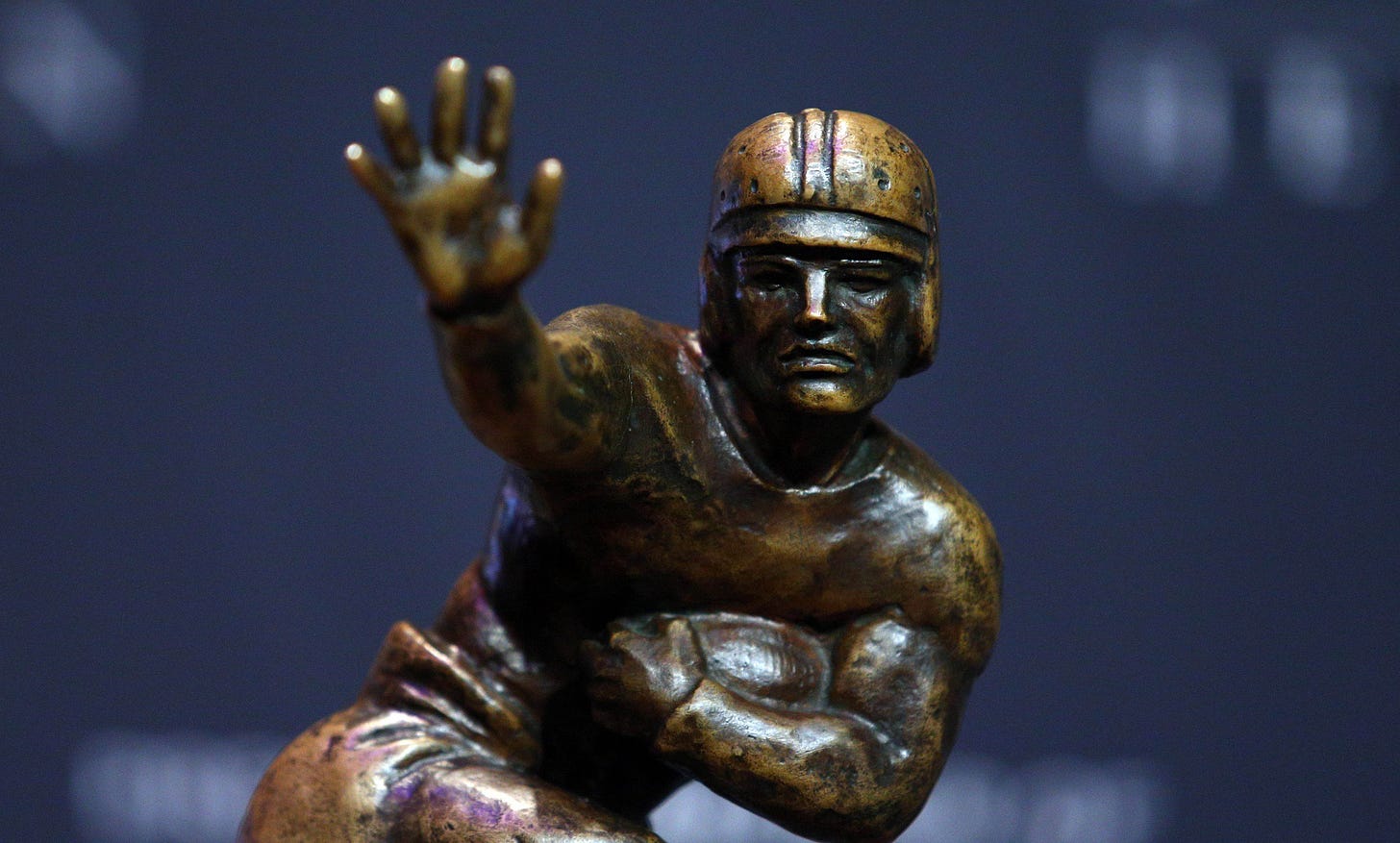
“[The NFL is] like a spectacle of violence, for entertainment, and you’re the actors in it. You’re complicit in that: You put on the uniform. And it’s a trivial thing at its core.
It’s MAKE-BELIEVE, really. That’s the truth about it.”
— Chris Borland, San Francisco 49’ers Linebacker
https://www.theburningplatform.com/2023/07/25/american-idols/#more-309334
